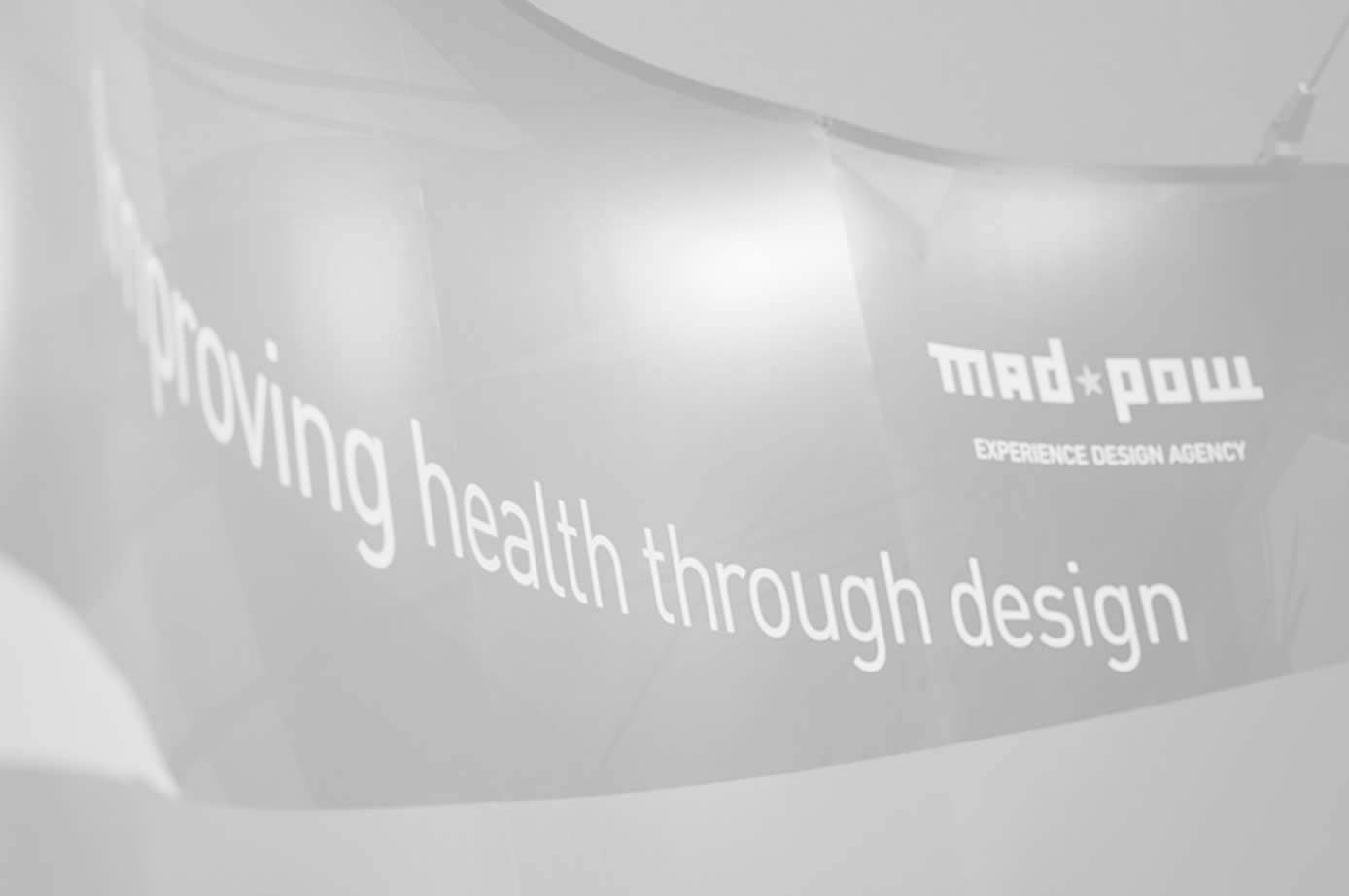HxD Conference Has Designs on Smarter Healthcare
Mike Millard, Managing Editor, HealthCare IT News
Article Published on March 27, 2012 - healthcareitnews.com
"We're in a classically disruptive moment right now," said newly-minted U.S. Chief Technology Officer Todd Park, speaking Monday at the Healthcare Experience Design (HxD) conference, "from which more good will come than we can possibly imagine."
The HxD conference, organized by Mad*Pow design agency and Claricode, a developer of medical software, gathered academics, designers, developers and user experience experts – from MIT, Stanford, Mayo Clinic, Kaiser Permanente, Siemens, Allscripts and more – for a day-long confab aimed at rethinking the ways design and philosophy could be brought to bear on electronic health records, mHealth apps, medical devices, clinician workflow and the patient experience.
Park, exuberant and enthusiastic as ever, sang the praises of the galaxy of innovative apps developed so far under the auspices of the Health Data Initiative (HDI), launched during Park's stint as Health and Human Services CTO, in conjunction with the Institute of Medicine, which has unlocked troves of government health data, seeking to catalyze an "self-propelled, open ecosystem of innovation" by which private-sector developers put that data to use and improve health.
The project is in "turbo-overdrive," Park said – and should only go forward further and faster now that HHS will be doubling the amount of data on healthdata.gov in next six months.
Earlier in the day, however, Devorah Klein, principal at Continuum, a Boston-based design consultancy, cautioned that not all mHealth apps are created equal – even when a lot of thought is put into their design, some fail to achieve the desired effect: actual, real-world health improvement.
She mentioned the "marginal and sometimes even negative impact of certain well-designed approaches" to apps addressing wellness issues such as smoking cessation and weight loss – areas which are fraught with risks of setbacks and failure for even the most-well-intentioned patients.
"If you can't prevent failure, you need to accept that it will happen and design for it," said Klein, who noted that information overload and "shaming and blaming" are entirely counterproductive strategies. Good wellness apps will have mechanisms built into their design approaches for the inevitable slippage: "People need the tools to fail, not just to succeed."
On the EHR front, Jill Reed, user experience research manager at Allscripts, described how the firm went about trying to design an iPad-based health record that "physicians will actually use – and not loathe."
Among its approaches: recognizing that no single device is perfect for each situation; ensuring that the task at hand is the "right one for the device," rather than vice-versa; maintaining a focus on the family physician, rather than on a multitude of specialists with wildly different workflow needs; examining floor plans to gain knowledge about physical workflow and "interaction points"; and keeping an eye on the bigger picture rather than "bit by bit functionality."
Too many doctors, said Reed, have to "sift through mountains of data," much of which is "not relevant to what they're doing"
Scott Lind, director of user experience at Siemens Healthcare, echoed those concerns – and described some of the challenges of designing EHRs for clinicians' "highly variable workflows."
Oftentimes, "creating a good user experience is … a power struggle," he said. With many competing interests and layers of bureaucracy at stake, knowing what's best to do and actually doing it are too entirely different things. "Everyone believes in good user experience," he said. But too often it gets short shrift, since "it's always something that can be put off."
Good design "takes resources," he said, and with developers still focused first and foremost on meeting a long checklist of meaningful use mandates, sometimes it can suffer. Nonetheless, he argued, it's important for EHR architects to make the case for good design, and "cultivate a culture" where it has a "voice."
In her presentation, Meredith Dezutter, senior service designer at the Mayo Clinic Center for Innovation, telescoped out to explore how the patient experience is evolving, and what healthcare will be designing for in the future.
Currently working on multiyear initiative to redesign Mayo Clinic's outpatient practice, Dezutter has spent a lot of time thinking about the "patient of the future."
Recognizing that "health is not just a medical issue," Dezutter analyzes social drivers, economic and environmental factors and more to try to see into that crystal ball. Already, she said, with new developments in crowd-sourcing, cloud computing. remote monitoring, data mining, we're seeing big changes afoot on both the patient and provider sides of the equation.
All this change is "challenging orthodoxy that expertise can only come from medical professionals," said Dezutter – adding that "we are all patients; we should create the systems and experiences we want."
At the HxD closing keynote, athenahealth CEO Jonathan Bush gave a funny and spirited summation of the challenges and opportunities facing healthcare in the coming years.
He also fielded some tough questions from audience members – one of them a physician who opined that most docs think most EHRs "suck."
Certainly most of them have some work to do on the design front. For a nation of consumers having grown quickly accustomed to the smart and elegant designs of Apple's iPhones and iPads, the ungainly and ill-conceived interfaces of many EHRs leave them wanting more.
Bush agreed. The electronic health record "has to be beautiful," he said; it has to have "a simple and elegant expression of purpose."





